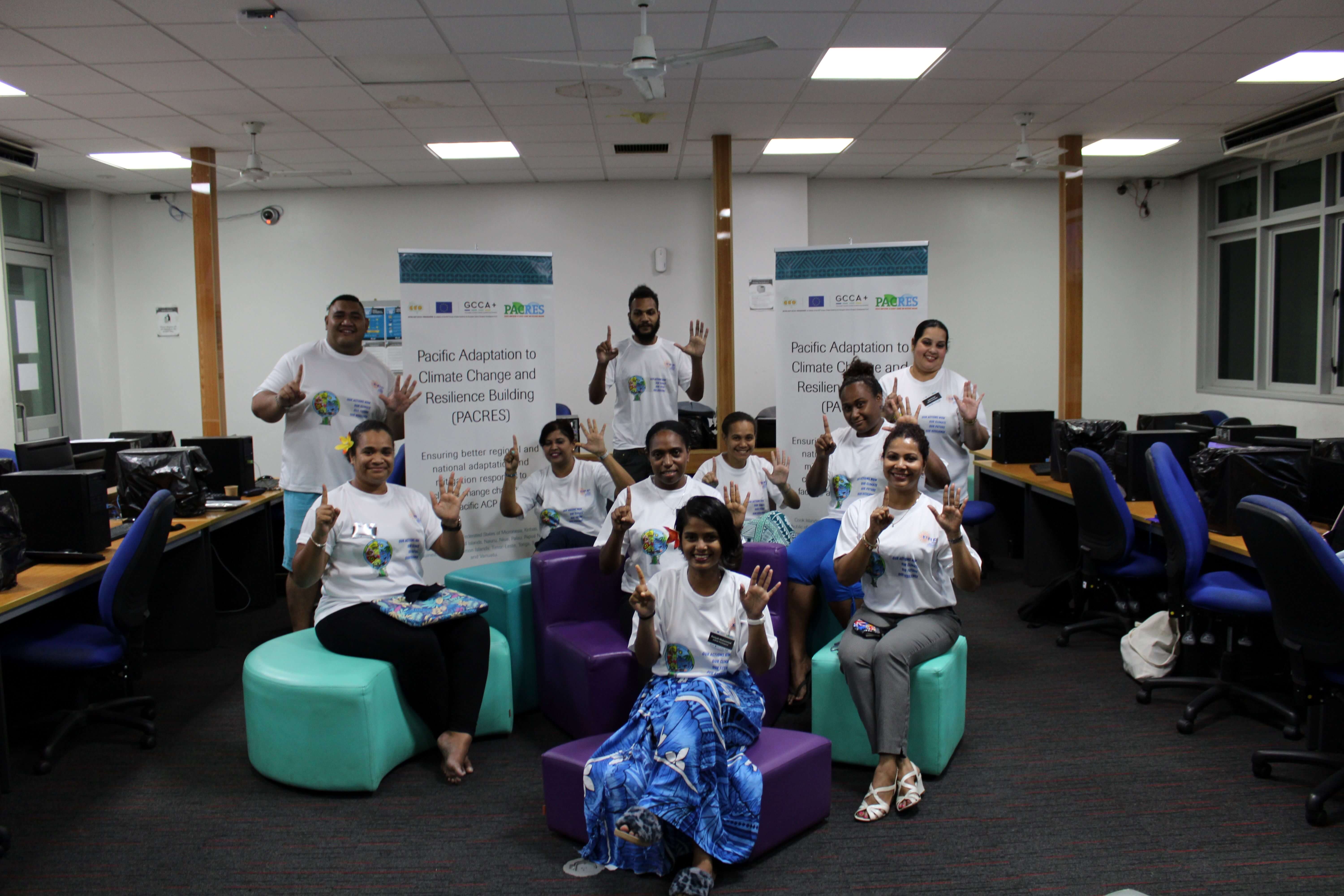Related News

The pressing urgency to reduce greenhouse gas emissions, with 80 per cent originating from energy generation and use, remains a central focus in all Conference of Parties (COP) negotiations.
The Conference of the Parties to the United Nations Framework Convention on Climate Change (UNFCCC) has been an annual gathering since its establishment in March 1995 in Berlin, Germany, except for a missed year due to the COVID-19 pandemic.
The Pacific Adaptation to Climate Change and Resilience Building (PACRES) project is convening its Project Steering Committee Meeting and lessons learned session at Novotel Nadi, Fiji, from 30 July to 04 August 2023. The five-day event brings together representatives from various countries, partners, and donors to deliberate on the region’s progress and devise strategies to combat the detrimental impacts of climate change.
Thanks to funding from the European Union Intra-ACP GCCA+, The University of the South Pacific (USP) plays a crucial role in supporting three Key Result Areas (KRAs) within the USP PACRES component of the project.
One of the essential functions of USP PACRES is to enhance resilience in P-ACP countries by supporting USP staff and regional student negotiators participating in UNFCCC Conference of the Parties (COP) sessions. Since 2019, the USP PACRES Project has actively facilitated and supported negotiator participation in COP event preparatory training, including Pre-COP Training and SPREP-led negotiator training. The initiative has already trained over 200 young USP negotiators.
As part of its commitment to Key Result Area 1, PACRES collaborates closely with P-ACP governments to ensure the presence of young negotiators at UNFCCC Conference of Parties events.
Furthermore, the project provided sub-national climate change and disaster risk management training to incorporate climate change and disaster risk management into national, sub-national, and community development plans, as well as expand ecosystem-based adaptation pilots.
During the week-long meeting, PACRES country representatives and partners will actively engage in the forum, sharing their perspectives on project progress, proposed changes, and lessons learned. This interactive workshop will create a conducive environment for fostering meaningful discussions and facilitating the exchange of experiences among all the participants.
The USP component of the EU-funded Intra-ACP GCCA+ PACRES program is implemented in partnership with the Secretariat of the Pacific Regional Environment Programme (SPREP), the Pacific Community (SPC), and the Pacific Islands Forum Secretariat (PIFS).